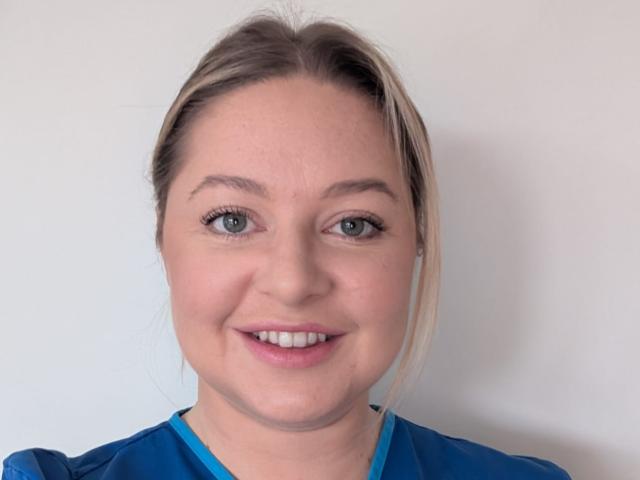
‘The role of a research nurse remains one of the most misunderstood’
28 February
A clinical research specialist nurse funded by Health and Care Research Wales has lifted the lid on her role in an exclusive interview with the Nursing Times.
Victoria Garvey, from Betsi Cadwaladr University Health Board, said the role of a research nurse remains one of the most misunderstood, despite it being a core part of NHS business and fundamental to the wider health agenda, spanning prevention, diagnosis and treatment.
Clinical research nurses play a vital role in delivering clinical research, and ultimately improving patient care and treatment pathways. The PRIORITY project, commissioned by Wales’ Chief Nursing Officer, Chief Allied Health Professions Adviser and Director of Health and Care Research Wales, is developing an action plan to increase capacity and capability for doing and using research in the nursing, midwifery and 13 allied healthcare professions.
Speaking to the nursing times: “As a research officer at the time, running clinical trials at our district general hospital, I was surprised at how little was known about the role of research nursing and the benefits it has for patients and the NHS as a whole.
“During my nurse training, my peers would ask me why I wanted undertake literature reviews and analyse statistics instead of seeing patients. Even tutors would question why I wanted to go into research nursing, as it “wasn’t clinical”.
“This is a common misconception of the role of a research nurse. Although a trial sponsor and experts in the field design the trial protocol, I spend my time with patients, undertaking many of the day-to-day tasks you would expect from a nurse, with a research twist.”
Victoria usually meets with patients when they are given a diagnosis of cancer, and works as part of the clinical team to offer them the opportunity to enrol in a clinical trial.
A typical day involves giving general nursing care in wards and clinics to multiple patients enrolled in trials, seeing patients throughout their treatment and beyond.
She added: “In addition to patient-facing tasks, we undertake specific research activities, such as processing samples, performing randomisations, providing robust patient data, and setting up new trials.
“The majority of patients we approach volunteer to go into a trial. They quote reasons such as wanting to contribute to the evidence base or find a cure, or wanting access to new drugs, testing or a review from experts across the country.
“In-depth testing provided by trials enables us to detect cancer on a molecular level, analyse genetics in new ways, and review scans with new technology.
“With this knowledge, trials enable us to offer more intensive or personalised treatments, or additional drugs for patients who are at the highest risk of relapse or less likely to respond. Occasionally we can offer patients cancer treatment through a trial when there are no other options available to them. Research nursing can literally save lives!”